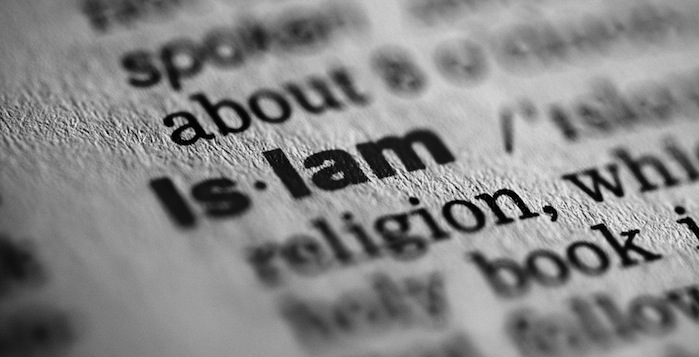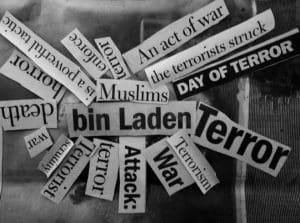
How should we respond to prejudices about belief?
By Stephen H. Jones

Reflections on Islamophobia: Still a Challenge for Us All
The publication of The Runnymede Trust’s report Islamophobia: A Challenge for Us All in 1997 was a watershed moment in the history of recognising and opposing anti-Muslim prejudice. The first British policy report to focus on the problem of Islamophobia, it is often credited with popularising the term. Last week an updated report, Islamophobia: Still a Challenge for Us All, was released to mark its twentieth anniversary. In this post, Stephen H. Jones offers reflections on the new report’s understanding of Islamophobia utilising research for Science and Religion: Exploring the Spectrum on non-Muslims’ perceptions of Islam and science.
It is hard not have mixed feelings on reading the new Runnymede report Islamophobia: Still a Challenge for Us All. Marking 20 years since the launch of Runnymede’s publication of (almost) the same name, it offers a retrospective that makes it clear how far the UK has come in recognising and responding to anti-Muslim prejudice. In 1997 legislative protection for discrimination and hatred on the basis of religious belief was many years away. The British Muslim population was, in comparative terms at least, poorly organised and represented. The inclusion of Muslims in egalitarian and anti-racist activism was – as Tariq Modood remarks in his contribution – limited. Many situations have, then, improved considerably in the last two decades. At the same time, the launch of a report that marks 20 years of steadily increasing hostility toward Muslims in the UK and beyond is hardly an occasion for celebration. Islamophobia is as big a problem as it ever has been, yet it is still only rarely acknowledged within government.
I confess that my mixed feelings extend to the report itself as well. There is little question that, once again, Runnymede has produced a document that could – and I hope will – re-shape public perceptions of, and debates about, anti-Muslim prejudice. If the 1997 report brought Islamophobia onto the agenda, this one takes decisive steps toward cementing a definition capable of influencing policy and practice. Although the report takes the form of an edited collection rather than a statement by an assembled commission, it is very tightly argued (an impressive editorial feat given the differences between some of the contributors). Islamophobia is defined as ‘anti-Muslim racism’, with an extended definition – adapted from the United Nations definition of racism – placing the focus on restrictions on Muslims’ rights and freedoms. The collection as a whole then situates Islamophobia squarely within the history of race and racism, with the chapters highlighting ways in which Muslims’ lives and wellbeing are affected by discrimination, violence (and threats of violence), racialized surveillance and profound inequalities.
In doing this, the report builds upon, and at times challenges, its predecessor. 1997’s Islamophobia: A Challenge for Us All was undoubtedly a watershed moment in the history of opposition to anti-Muslim prejudice, especially in the UK. But its reading of Islamophobia was at times vague, with the concept being fleshed out through a series of binary oppositions (or ‘open’ and ‘closed’ perceptions of Islam). Whatever one’s views about the distinctions employed, this approach did not lend itself to watertight definitions of the kind that can be influential. Just as importantly, the report implied that Islamophobia proceeds in one direction: that distortion of Islam comes first, followed by consequences for Muslims. The problem with this, as Claire Alexander’s chapter in the new report highlights, is that we can equally view Islamophobia the other way around: as negative responses to bodies and cultural practices that are then justified with reference to stereotypes about Islam. When Islamophobia is understood to proceed only in the first direction, it is hard to build solidarity with other racisms; indeed, Alexander herself argues that Runnymede’s 1997 report actually undermined the struggle against racism toward Muslims.
Why, then, my reservations regarding the new report? In contrast to some commentators, I don’t disagree with describing Islamophobia in terms of race and racism per se. Islamophobia predominantly affects ethnic minorities while racist stereotypes – especially concerning some groups, such as British South Asians – do not always involve claims about biological inferiority. An expanded understanding of racism is certainly capable of encompassing stereotypes about, and violence against, Muslims. Rather, my reservations stem from the strong distinction the report makes between the emotional and physical suffering of Muslims on the one hand (the report’s focus) and representations of Islam on the other (which the report leaves largely to one side). This is clear in Farah Elahi and Omar Khan’s introduction:
One reason we have chosen to focus our definition is that so much of the debate about free speech and criticism of Islam is irrelevant, or at best orthogonal, to the question of whether Muslims in Britain (and elsewhere) face discrimination – and what we in Britain should do about that discrimination.
Of course, there is a lot of truth in this. The debate about ‘legitimate’ and ‘unjustified’ criticism of Islam has been hopelessly unproductive. I’m not alone in wondering if the debate about Islamophobia would have moved forward slightly faster if the 1997s report’s definition – ‘unfounded hostility towards Islam’ – had not made differentiating between ‘legitimate’ and ‘unjustified’ criticism key. It is obviously the case, too, that what matters ultimately in Islamophobia is the personal suffering it causes. Why not then bypass fruitless debates and get to a point where everyone (perhaps even the National Secular Society or Polly Toynbee) can agree? Can we not leave to one side the question of whether or not the Islamic tradition is a bunch of silly fables and focus instead on the point that, whatever one thinks of Islam, violence and discrimination against Muslims is common and wrong?
If the report can indeed help British society to reach this kind of settlement, it will have done a huge service, not least because we are depressingly far from such agreement at present and other prominent attempts to set out a generally accepted definition have broken down (the fate of the All-Party Parliamentary Group on Islamophobia offers a good illustration of this, which is discussed in Chris Allen’s chapter). Even so, I do not think that this is sufficient for those concerned about anti-Muslim prejudice. Nor do I believe that criticism and representations of Islam are only partially relevant to discrimination against Muslims. My concern about the report, then, is that prejudices about belief are given very little explicit consideration.
Islam as fundamentalism
To illustrate this, I want to refer briefly to research I have been involved in over the last three years looking at perceptions of religion and science. What is interesting about this research subject is that it touches equally on abstract interpretive questions (about the status of religious texts) and questions about social relations (such as faith schools). The interviews and focus groups I and my colleagues have carried out cover all religious and non-religious traditions, but the comments made about Islam have been particularly striking. This is partly because of the sheer depth of hostility toward the tradition – which far outstrips any other – but it is also because of how interview narratives move between criticism of Islamic concepts, to claims about cultural minorities, to (in some cases) racialized language. Consider the following example, taken from a focus group with White non-religious members of the public based in London. It begins with a claim about belief, then one about demographics, then takes a sinister turn:
Participant 1: [I’m optimistic about the future because] I like to see it [history] as leaving ignorance and prejudice and bigotry behind us.
Participant 2: But it [ignorance] may not continue to depreciate…
Participant 3: No, I agree.
Participant 2: Because as demographics change I believe the birth rate amongst religious families is higher. But there is a sense that…
Participant 1: Except that the experience of this country is that they start to conform to the kind of patterns that the rest of us conform to…
Participant 2: I don’t…
Participant 4: I’m not sure that’s true.
Participant 3: It’s true about the number of religious groups, but I think there may be something about Islamic groups which is different.
The conversation continues, with Participant 4 eventually concluding with the following:
Just sitting in King’s Cross Station […], all the headscarves suddenly appear. I think, am I imagining this? But that says to me that something very, very dangerous is happening in this society. The danger is coming from Islam.
One question that follows from this is: in which direction is the prejudice moving in this case? Is it, as the 1997 report seemed to suggest, that hatred of Islam is leading to hostility toward the figure of the veiled Muslim woman? Or is it, as the new report implies, that racialized hostility is justified in religious terms? It is, of course, very difficult to tell – and it would be tempting to respond that it doesn’t really matter given that the consequences are the same either way. There is, however, one other finding in our research that challenges this.
In almost all interviews and focus groups where we encountered the cultural and racial othering of Muslims, narratives were rationalized via claims about the absence of interpretive variation in Islam. Comments such as the following were common:
I mean, what seems to be happening is, that people are deciding that Allah means exactly what he says. He’s not being symbolic. When he says, chop their heads off, he means chop their heads off […]. [Some people say] that needs a good interpretation […] [But] who are they to presume to interpret, that when Allah says this, he doesn’t mean it?
[Opposition to scientific reasoning] starts with, okay, the truth is in the Bible so we need to go and follow the Bible; it can’t be challenged in some people’s mind. And I know that’s a very simplistic view of Christianity but as far as Islam goes that’s how Muslims are required to view the world, the way […] it was written down 1,300, 1,400 years ago […].
More than just offering a ‘monolithic’ account of Islam, these narratives provide examples of what Kwame Anthony Appiah calls ‘scriptural determinism’: the assumption that a religious scripture determines its followers’ worldviews uniformly and can be used as an explanation for specific actions and (real or perceived) social changes. According to these narratives, stereotypes about Muslims are valid because Islam encloses them in a rigid interpretive framework. Edward Said touched on this kind of prejudice thirty years ago in his writing on the category of ‘Islamic fundamentalism’, but it is scarcely discussed by scholars of race and ethnicity today.
This is a shame because our interviews followed a distinct pattern. Racialized claims were relatively rare. Crude assumptions about literalism in Islam, however, permeated our data more deeply. Assumptions about literalism in Islam, furthermore, cut across differences in class, education and political positioning. Racially charged comments about Muslims tended to be made by people who had radical libertarian or anti-élite political views. Generalizations about interpretation in Islam, in contrast, were found across political positions, including stances committed to equality. Some interviewees even expressed concern about the hostility to which Muslims are subjected while at the same time offering a deterministic reading of Islam. For example, the second person quoted above – an educated White–British middle class musician who identified as humanist – felt there was no contradiction between his comments about what Muslims are ‘required to believe’ and making the claim that prejudice against Muslims ‘definitely is a problem in this country’.
This pattern calls to mind Baroness Sayeeda Warsi’s famous claim that Islamophobia has ‘passed the dinner table test’ – that is to say, permeates beyond political extremes into contexts of middle class domestic respectability. This claim is indeed what our research suggested, but in an importantly qualified way: outright hostility toward Muslims as people was more restricted, while scriptural determinist narratives about Islam, which are not subject to the same public criticism, were considerably more widespread. With religion not being subject to the same public censure as explicit remarks about ‘race’, narratives about Islam as faith emerged as a form of ‘acceptable’ anxiety about Muslims. The ‘dinner table’ Islamophobia we encountered is a ‘soft’ prejudice where outward commitment to tolerance of Muslims as people coexists with the view that, in Islam, religious sources can only be followed literally. There is no racialized language, or Enoch Powell-style rhetoric about demographic colonisation of Europe, but still a deterministic view of interpretation in Islam not only erases the complex traditions of allegorical interpretation in Islamic history but also gently implies that believing Muslims pose a threat.
Religion and race in the structuring of Islamophobia
This discursive switch from the language of race to the language of faith is, I am increasingly certain, crucial to the structuring of Islamophobia. In much the same way as British tabloids promote a racialized understanding of British history and identity while at the same time denouncing racism, claims about a lack of interpretive variation in Islam enable the cultural and racial othering of Muslims to proceed, even at the same time that anti-Muslim discrimination and violence is denounced. Such narratives are obviously relevant to the tendency for Muslims to be harassed when they display visible signs of faith, but also, importantly, they help to sustain and to normalise Islamophobia. Islamophobia runs so deep into British and other Western societies partly because this dynamic is rarely spoken of, much less challenged, directly.

So we need, then, to take two steps. The first is to cement an agreed definition of Islamophobia that can prevent the wider public from diminishing the physical and emotional suffering of Muslims (and, of course, those perceived to be Muslim). On this, Islamophobia: Still a Challenge for Us All can’t be faulted. Yet alongside this there is also the need to convince others that voluntarily chosen beliefs can be, and today routinely are, misrepresented in potentially harmful ways. For me, this is not something that can be addressed through legislative changes without placing unjustifiable restrictions on freedom to criticise people’s beliefs. It can and should, however, involve some kind of response by those with an interest in anti-racist and egalitarian activism. Too often debates and scholarship on race and racism have little or no time for questions of religious belief, and Islamophobia: Still a Challenge for Us All suffers from this. Looking across the report I was struck that social mobility, health, hate crime, security, race, integration and gender are all included as themes (and each subject is covered superbly), but a chapter on religious belief is absent. Although made up of scholars and activists I have an immense amount of admiration for, compared with the 1997 report the inclusion of specialists in religious belief is somewhat limited.
To some degree, my frustration here is as much with where Britain is as a society, and its inability to talk meaningfully about religion, as it is with the report itself. The inclusion of more focused discussions about depictions of belief might well have muddied the waters and prompted adverse reactions from people like Nazir Afzal who have praised the report or even, in the case of Kenan Malik, contributed to it. Perhaps it makes tactical sense, for now, to focus on defining Islamophobia in a way that secures maximum agreement in order to win battles against discriminatory practices and violence and then to move on to re-shaping society’s views about Islam. The worry I have right now, however, is that even those concerned by different forms of racism often don’t seem to think that prejudices about belief are worth attending to.

Stephen H. Jones is a a sociologist of religion specialising in the study of Islam and Muslims in the UK and religious and non-religious publics’ perceptions of science. He is a Lecturer at the University of Birmingham and General Secretary of the Muslims in Britain Research Network. He writes here in a personal capacity. For more see his Research Profile.
Follow Stephen on Twitter: @StphnHwrdJns
